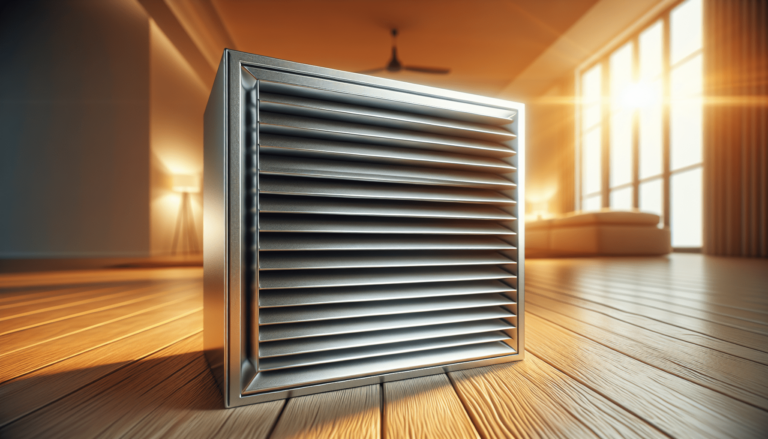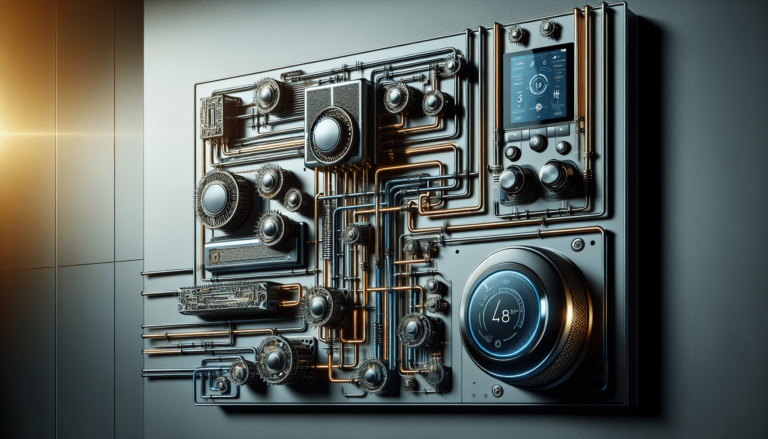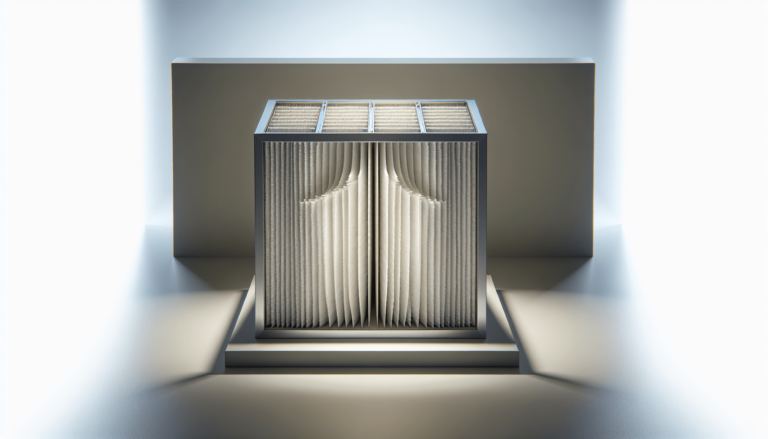

HVAC Services
Get Professional Repairs From The Area's Trusted HVAC Technicians. Ask About Our Services! We Offer Professional Heating & Cooling System Repairs And Guarantee Long-Lasting Results.
Got Question? Call us: (850) 678-2665Financing
Preventive Maintenance Tips for HVAC Systems
Ensure the longevity and efficiency of your HVAC system with these preventive maintenance tips. Save money on energy bills and avoid costly repairs.
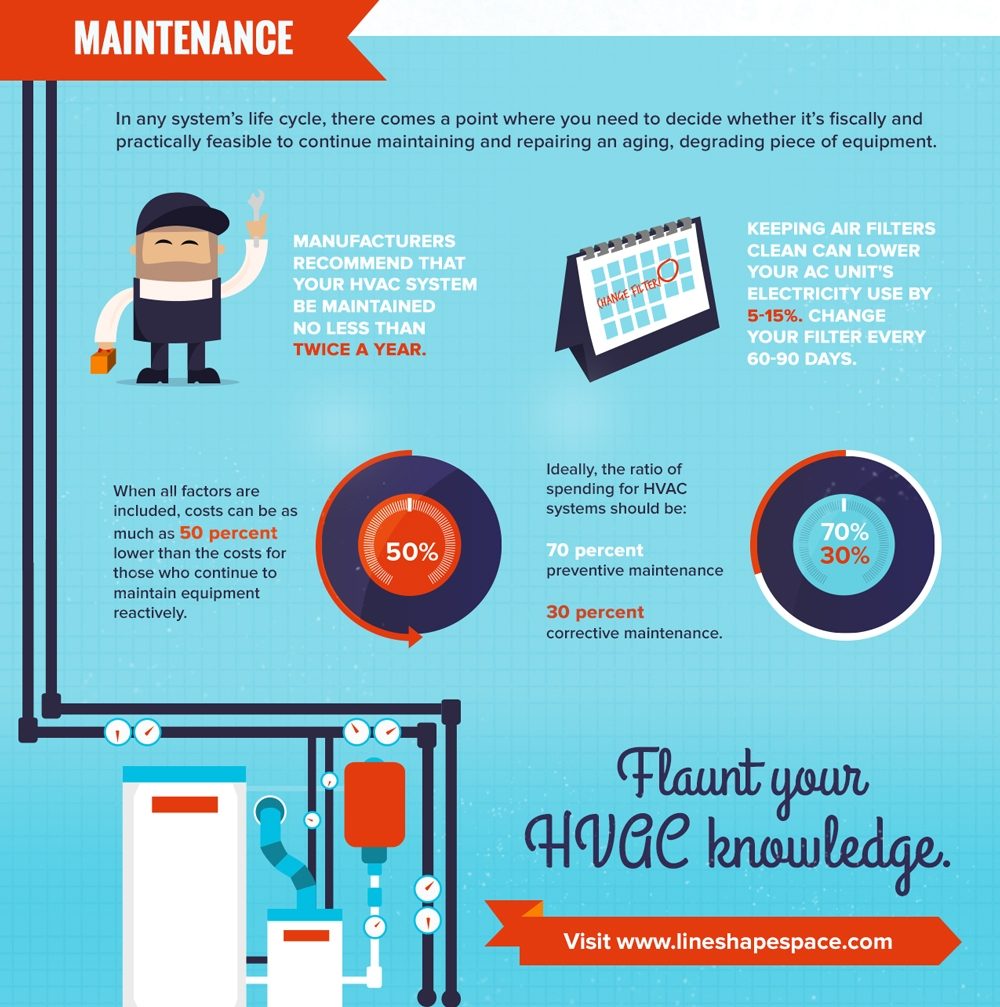
Maintaining your HVAC system is crucial for ensuring the comfort and efficiency of your home. In this article, we will provide you with some preventive maintenance tips that will help prolong the lifespan of your HVAC system and avoid costly repairs. From regularly changing air filters to inspecting and cleaning the outdoor unit, these simple tips will not only keep your system running smoothly but also save you money on energy bills. So, let’s dive in and discover how you can take care of your HVAC system with ease. Remember, if you need professional assistance in the Niceville FL area, Tempacure Heating and Air Conditioning is the go-to source for all your HVAC service, repair, and maintenance needs.
Preventive Maintenance Tips for HVAC Systems
Your HVAC system plays a crucial role in providing you with a comfortable living environment, which is why it’s essential to take good care of it. By performing regular preventive maintenance on your HVAC system, you can prolong its lifespan, improve its efficiency, and save money in the long run. In this article, we will provide you with some valuable tips for maintaining your HVAC system to ensure it operates smoothly all year round.
Regular Inspections
Regular inspections are a vital part of preventive maintenance for your HVAC system. It’s important to visually inspect your system on a routine basis, checking for any signs of damage or wear. Start by examining the exterior of the unit, looking for any debris or obstructions that may restrict airflow. Additionally, ensure that there are no leaks or unusual noises coming from your system.
Inside your home, inspect the air vents and registers to make sure they are clean and unobstructed. Check for any dust accumulation or blockages that may impede the airflow. By conducting regular inspections, you can catch any small issues before they turn into major problems.
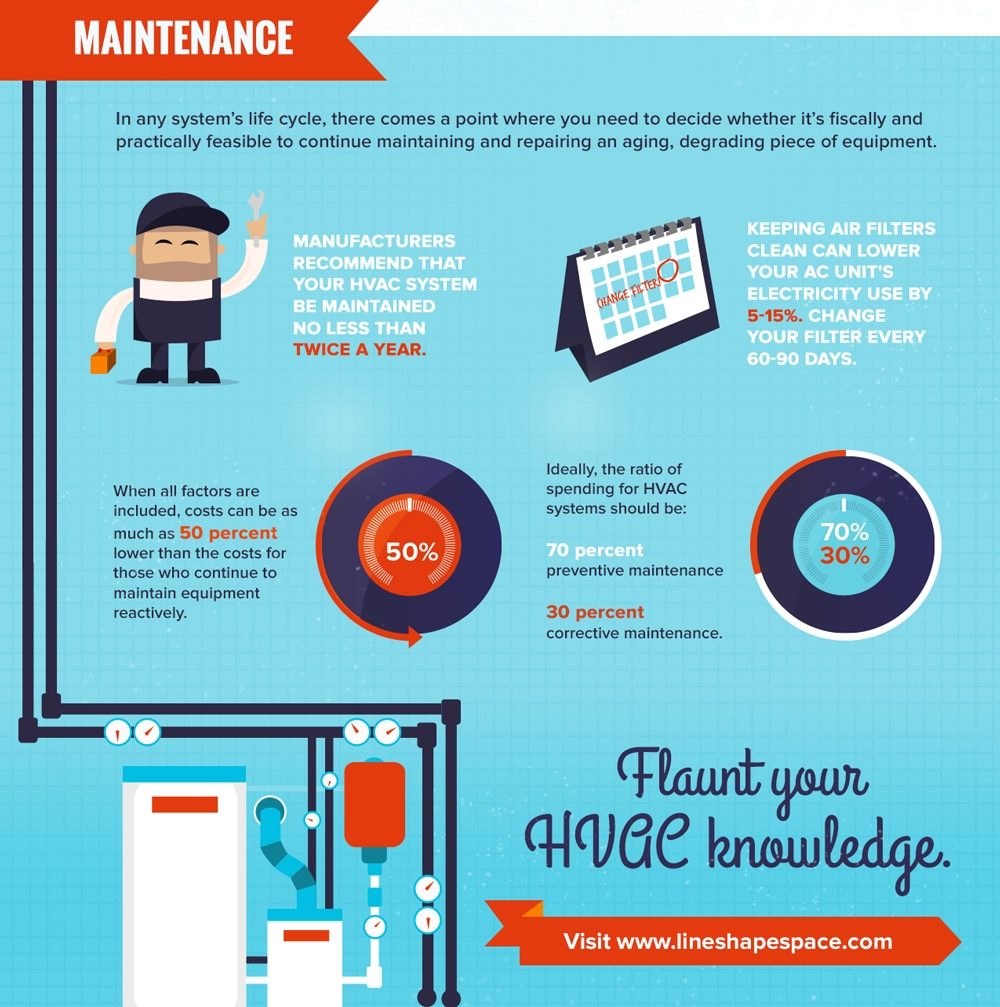
This image is property of www.legacyheating.ca.
Changing Air Filters
One of the simplest but most important maintenance tasks you can perform for your HVAC system is changing the air filters regularly. Air filters help to trap dust, allergens, and other particles, preventing them from circulating in your home. Over time, these filters can become clogged, reducing the efficiency of your HVAC system and compromising the air quality in your home.
To maintain optimal performance and indoor air quality, it is recommended to change your air filters every one to three months. However, this can vary depending on factors such as the type of filter you use, the number of occupants in your home, and the presence of pets. Regularly changing your air filters will not only improve the efficiency of your system but also help prevent potential breakdowns.
Cleaning Condenser Coils
The condenser coils in your HVAC system are responsible for transferring heat from inside your home to the outside. Over time, these coils can become coated with dirt, dust, and other debris, which can significantly reduce their efficiency. To prevent this, it’s important to clean the condenser coils on a regular basis.
Start by turning off the power to your HVAC system. Then, carefully remove any debris or vegetation that may have accumulated around the condenser unit. Next, use a soft brush or a vacuum cleaner with a brush attachment to gently clean the coils. Be careful not to apply excessive pressure, as this could damage the fins. By cleaning your condenser coils, you can ensure that your HVAC system operates at peak performance, saving energy and preventing premature wear and tear.

This image is property of assets.searshomeservices.com.
Checking Refrigerant Levels
Proper levels of refrigerant are essential for your HVAC system to cool your home effectively. If the refrigerant levels are too low, it can indicate a leak, which needs to be addressed by a professional HVAC technician. Checking the refrigerant levels should be a part of your regular preventive maintenance routine.
To check the refrigerant levels, you will need to access the service valves on your outdoor unit. However, it’s important to note that handling refrigerant requires specific knowledge and equipment, so it’s best to leave this task to a qualified technician. They can accurately measure the refrigerant levels and ensure that your system is properly charged.
Lubricating Moving Parts
Your HVAC system consists of many moving parts, such as motors, fans, and bearings. Proper lubrication is crucial to ensure these components operate smoothly and efficiently. Over time, the lubrication can break down or dry out, leading to increased friction and wear on the moving parts.
Regularly lubricating the moving parts of your HVAC system can help reduce the risk of breakdowns and extend the life of your equipment. Check your system’s manufacturer guidelines to determine which parts require lubrication and the recommended frequency. Use a lubricant specifically designed for HVAC systems and follow the instructions carefully.
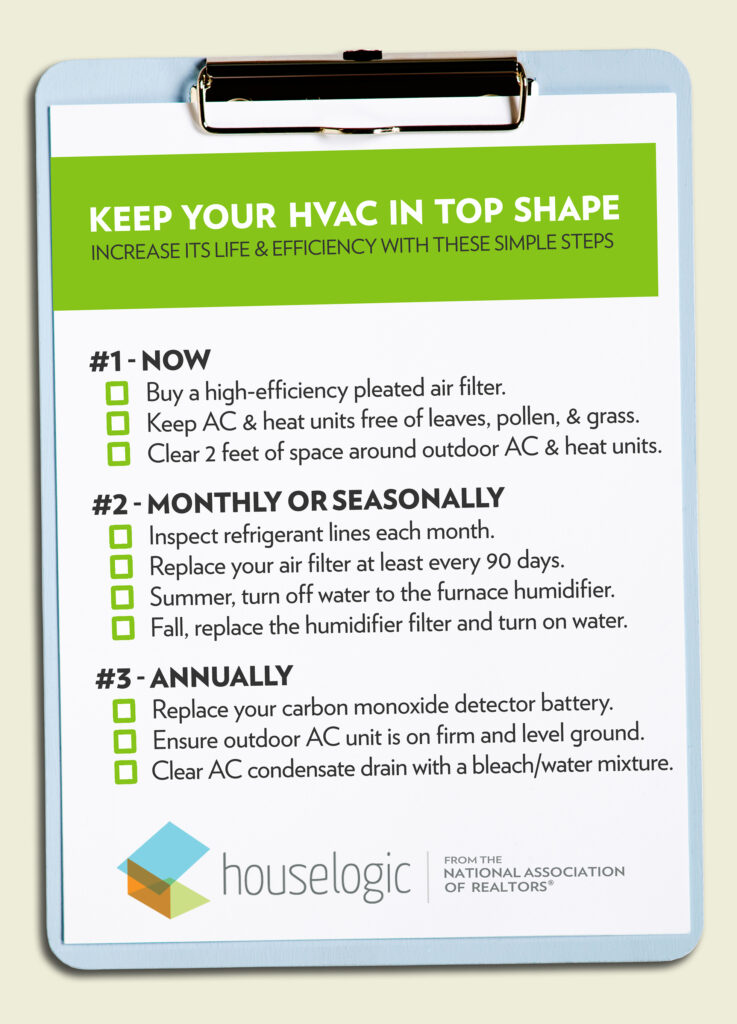
This image is property of static.houselogic.com.
Clearing Drainage Lines
Your HVAC system has drainage lines that remove the condensation that occurs during the cooling process. These lines can become clogged with dirt, algae, or debris, causing water to back up and potentially damage your system. By regularly clearing the drainage lines, you can prevent costly water damage and ensure the proper functioning of your HVAC system.
To clear the drainage lines, start by locating the drain pipe, usually located near the indoor unit of your system. Gently remove the cap or plug and use a wet/dry vacuum or a pipe cleaner to clear any blockages. Remember to turn off the power to your HVAC system before attempting to clear the drainage lines. If you are unsure or uncomfortable performing this task, it’s best to consult a professional technician.
Testing Thermostat
Your thermostat is the control center of your HVAC system, allowing you to adjust the temperature and control your home’s climate. Regularly testing your thermostat can help ensure that it accurately senses and maintains the desired temperature in your home.
Start by checking the display on your thermostat to ensure that it is functioning properly. Then, set the temperature to a desired level and observe if the system responds accordingly. If you notice any issues, such as an unresponsive thermostat or inconsistent temperature, it may be time to replace or recalibrate your thermostat.
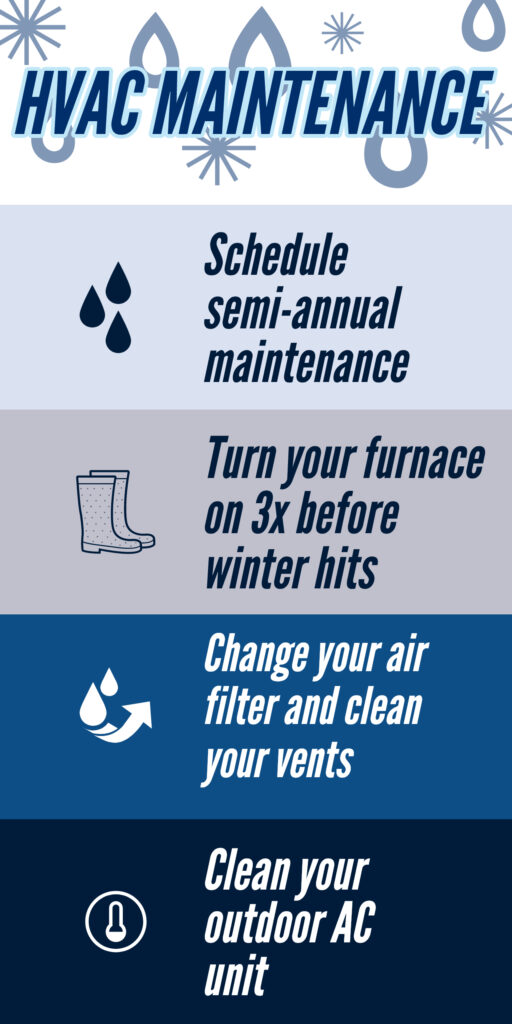
This image is property of manage.eastwoodhomes.com.
Inspecting Electrical Connections
Your HVAC system relies on electrical connections to operate efficiently and safely. Over time, these connections can become loose or corroded, leading to reduced performance and potential safety hazards. By inspecting the electrical connections on a regular basis, you can catch any issues before they cause significant problems.
Start by turning off the power to your HVAC system before inspecting any electrical connections. Carefully examine the wiring and terminals, looking for any signs of loose connections, frayed wires, or discoloration. If you find any issues, it’s important to contact a professional technician to address and resolve the problem.
Checking Fan and Blower Motors
The fan and blower motors in your HVAC system are responsible for circulating the air throughout your home. Regularly checking these motors is essential to ensure that they are operating efficiently and effectively.
Start by turning off the power to your HVAC system and locating the fan and blower motors. Inspect them for any signs of wear, such as excessive noise, vibrations, or overheating. If you notice any issues, it’s best to consult a professional technician to diagnose and repair the problem. Regular maintenance and lubrication of these motors can help extend their lifespan and improve the overall performance of your HVAC system.
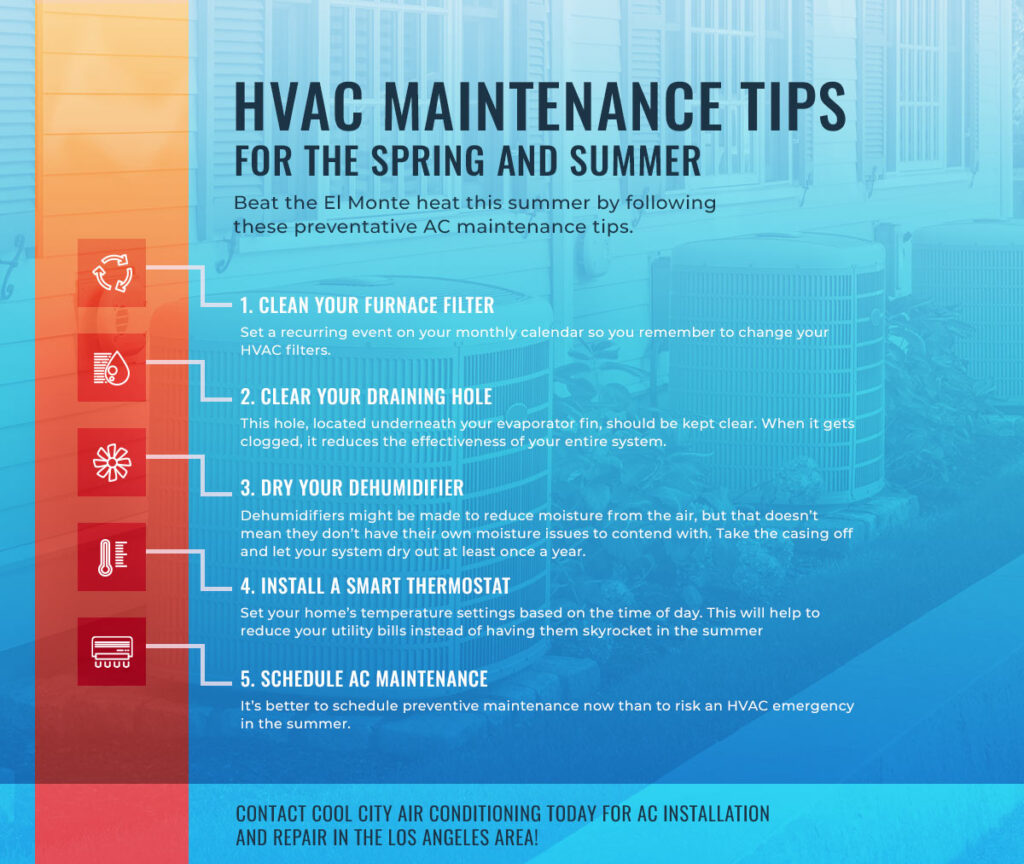
This image is property of dta0yqvfnusiq.cloudfront.net.
Cleaning Vents and Ducts
Clean vents and ducts are essential for maintaining good indoor air quality and preventing potential health issues. Over time, dust, dirt, and other debris can accumulate in your vents and ducts, leading to restricted airflow and reduced efficiency of your HVAC system.
Regularly cleaning your vents and ducts can help improve the air quality in your home and extend the life of your HVAC system. Start by removing the vent covers and using a vacuum cleaner with a brush attachment to remove any visible dust or debris. If you suspect a significant buildup of dirt or mold in your ducts, it may be beneficial to hire a professional duct cleaning service.
In conclusion, performing regular preventive maintenance on your HVAC system is essential to ensure its longevity and efficiency. By following these tips and incorporating them into your maintenance routine, you can keep your HVAC system running smoothly, improve indoor air quality, and save money on energy bills. Remember, if you are unsure or uncomfortable performing any maintenance tasks, it’s always best to consult a professional HVAC technician. Stay proactive and enjoy a comfortable and healthy living environment all year round.


